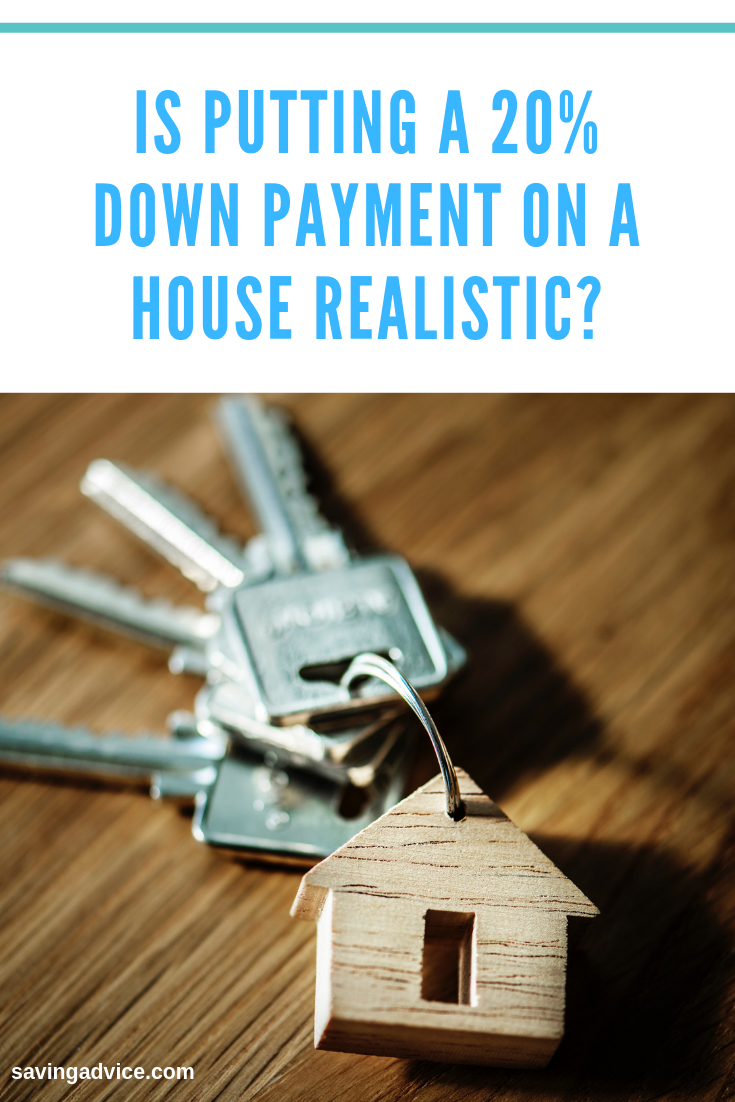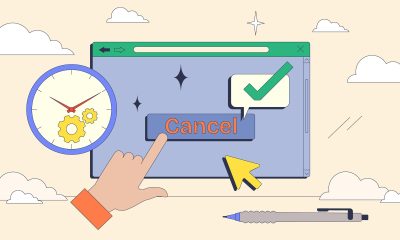Budgeting
Is Putting a 20% Down Payment on a House Realistic?

I understand the argument behind the advice of putting at least a 20% down payment on a house purchase. No one wants to pay private mortgage insurance and the idea of getting two different loans to avoid it isn’t that great either. I imagine if you are a previous homeowner and have some equity from a previous house to put down on a new one, a 20% down payment is very feasible, but what about first time home buyers?
Saving Up The 20% Down Payment has Huge Opportunity Costs
In the area that I currently live, the average home price is about $175,000 for a decent starter home. That’s actually a pretty low price compared to where I grew up across the state, where you can’t get a decent starter home for under $275,000. Let’s say someone wanted to buy a home for the first time. A 20% down payment for an average house in each area would be $35,000 and $50,000 respectively (and that doesn’t even include closing costs) Who has that kind of cash readily available? Not many people. So the advice many are given is to save up and wait.
Let’s look at what that would look like. Say you are able to save $500 a month towards your down payment. You are able to knock down your costs and pull aside that much every month. It would take you almost 6 years of saving $500 a month in order to afford the 20% down payment in the less expensive city and over 9 years to afford the one in the pricier area.
What if you were able to save $1,000 a month? Then it would take you 3 years and 4.5 years respectively. But saving $1,000 a month is quite difficult when you are trying to fund a retirement account and live day to day. Especially for up to 9 years. Most first home buyers are younger – probably in their 20s. In the best case scenario, you need to save for 3 years – in the worst case, it would be 9 years (this is assuming you already have a sizable emergency fund to take care of unexpected expenses).
It is even harder when you start looking at this from a market standpoint. House prices will rise. I don’t care what the housing market looks like now – eventually, the values will rise again. Let’s say values rise at a conservative 1% per year. In 3 years, each “average” house will cost at least $5,500 and $8,500 more, respectively. In 9 years, each house will cost at least $16,000 and $25,000 more, respectively.
Everyone who finally reached their 20% down payment goal will now need more money than originally thought for the down payment of a home that is now more expensive. Not to mention the money lost on throwing away rent rather than building equity (however small that amount may be in the first few years). Add to that the tax deductions missed and the missed opportunity to profit from the market’s increasing values. Ouch! Those numbers aren’t pretty. You have to spend money on housing either way – why not get some benefits from it?
Chances are, if you are saving a huge chunk of money each month for a large house down payment, you aren’t contributing the max to your retirement account. Your early investing years are the most critical for your future because of the wonderful concept called compounding interest. You could lose some very valuable interest time by waiting to invest (or increase your investment amount).
It Is Perfectly Reasonable To Buy A Home For Less Than 20% Down
Perhaps there are some people for which putting a 20% down payment on a house is not only possible but also a perfect fit for them. I personally don’t know any of those people and am not one of them. We chose to buy our house with no money down and use our monthly extra to invest more, stock up our retirement fund, fund our emergency savings, and make improvements to our house that will increase the value when we go to sell.
The funny thing is that our mortgage is not outrageous, we are not struggling to keep up with our payments and we are not in jeopardy of defaulting on our loan. The fact of the matter is that there are people who are a high risk to mortgage companies who will likely default on their loan if they get into a house with no money down. But there are also responsible people who will pay their mortgage on time every month who just want to have a choice of what to do with their extra money and how to best use it.
Can You Get A Mortgage For Less Than 20%?
Yes. You can get a mortgage for less than 20% down. The best way to find out if you can do this is to start making calls. You’ll want to talk with a mortgage broker. Probably you’ll want to talk with several. A good starting place might be USAA (they have great customer service) as well as your local credit union. Stay away from the bigger banks, they sometimes have incentives that are perverse (for example, by pushing low money down loans or adjustable rate mortgages).
Read the full article here

-

 Make Money6 days ago
Make Money6 days ago10 Ways to Make Money As a Graphic Designer
-

 Personal Finance5 days ago
Personal Finance5 days agoIf you are 60 years old, new 401(k) rules could save you money
-

 Investing6 days ago
Investing6 days agoCould Easier Cancellations Build Customer Loyalty?
-

 Investing4 days ago
Investing4 days agoBank regulator gives BlackRock new deadline on bank stakes, Bloomberg reports By Reuters
-

 Side Hustles6 days ago
Side Hustles6 days agoTrump’s 2025 Inaugural Committee Raises Record $170 Million
-

 Investing5 days ago
Investing5 days agoIt’s Time to Rewrite Your Company’s Values — Here’s How
-

 Side Hustles5 days ago
Side Hustles5 days ago5 AI Books Top Entrepreneurs Are Reading in a Rush for 2025
-

 Side Hustles3 days ago
Side Hustles3 days agoLA Rental Prices Skyrocketing Despite Price Gouging Laws


















